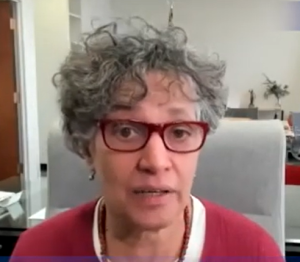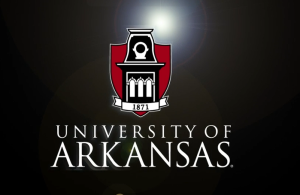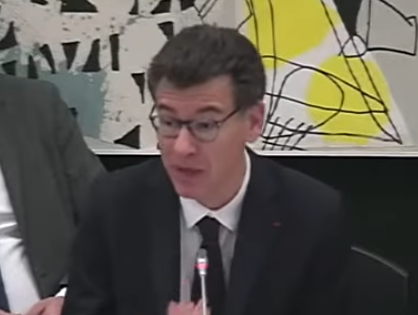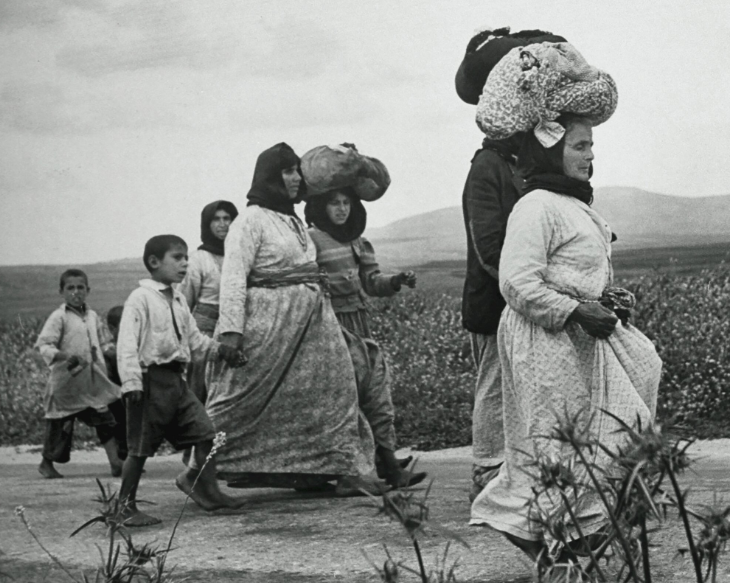16 November 2025
It is one of the more unpleasant ironies of our time that right-wing authorities in the Western world regularly accuse the universities of ‘no platforming’ presenters of unfashionable ideas (their own), when the only instances of no platforming that academics are aware of have involved suppressing the Palestinian voice at the insistence of the very same right-wing authorities on the specious grounds of fomenting antisemitism. We seldom learn just how this takes place: who speaks to whom who then speaks to the V-C concerned about no platforming the presenter in question. But in the case of the cancelled international conference in France our French academic friends, many of them extremely well placed, have been able to pull back the curtain to expose some of the manoeuvres, as described in the following report.
How the Collège de France came to cancel a scientific conference on Palestine
Posted on | Christophe Ayad | Soazig Le Nevé – France | The Source World
The decision to suspend the event, taken on November 9 by the administrator of the Collège de France, sets a precedent. Academics denounce the role played by Philippe Baptiste (pictured), the Minister of Higher Education and Research, who himself is said to have contributed to making the conference a “political event”.
Why was a university conference devoted to Palestine cancelled at the Collège de France? The question is being asked after the decision taken by the institution’s administrator to cancel an event entitled “Palestine and Europe: the weight of the past and contemporary dynamics”, which was to be held on 13 and 14 November, co-organised by the historian Henry Laurens and the Arab Centre for Research and Political Studies in Paris (Carep Paris).
The motivations that led to this radical decision – something not seen since the Second Empire, when Ernest Renan’s course was “suspended until further notice” by Emperor Napoleon III on February 26, 1862 – are questionable in their sequence. According to Thomas Römer, the administrator of the Collège de France, it was imposed “in reaction to the controversy surrounding the holding” of the event.
The “controversy” began with an article in Le Point, published on November 7. Under the headline “A high-risk pro-Palestinian conference,” the media outlet hypothesizes “two days with a pro-Hamas tendency.” The list of speakers “leaves no room for doubt”, “the conference will be pro-Palestinian, anti-Zionist and decolonial”, decrees the weekly. The International League against Racism and Anti-Semitism (LICRA), when questioned, even sees it as a case of “pure and simple entryism”.
‘Anti-Zionist fair’
As soon as it was published, the article was posted on X by the Licra, which announced that it was “seizing” [i.e. alerting] the Minister of Higher Education and Research, because it was an “anti-Zionist conference” and a “misuse” of the Collège de France. On November 8, on Europe 1, the vice-president of the league, lawyer Galina Elbaz, described the speakers as “very sulphurous personalities who all had positions that flirted with the apology of terrorism”. An “anti-Zionist fair” where “Hamas defenders, BDS [Boycott, Divestment and Sanctions] activists, and Al-Jazeera columnists would have gathered,” insists Licra.
These accusations, which insist on the financing of Carep by Qatari funds and accuse it of working underhand for the Muslim Brotherhood, outrage Salam Kawakibi, the executive director of the research center. “We are neither agents of Qatar nor of the Muslim Brotherhood,” he declares. We are privately funded, and we depend on the Arab Center for Policy Studies, the most prestigious Arab think tank based in Doha and with branches in Washington, Beirut, Amman, Tunis, Madrid and Paris. The founder of the centre, Azmi Bishara, comes from the secular left. The Steering Committee of Carep Paris is headed by Denis Bauchard, a respected retired diplomat who has served as ambassador, notably to Jordan and Canada.
The Carep was also accused by LeJDD of having deliberately chosen November 13, which coincides with the 10the anniversary of the attacks on the Bataclan and terraces in Paris and the Stade de France in Saint-Denis (Seine-Saint-Denis). The date was actually proposed by the administration of the Collège de France.
In a press release announcing the cancellation of the event on Sunday 9 November, Thomas Römer was keen to recall the “strict neutrality of the establishment with regard to issues of a political or ideological nature”. As “responsible for the safety of property and people, as well as the serenity of events”, he also explains that he has no choice but to give up “in the face of the controversy, but also the risks that are manifesting themselves around this conference”.
The Collège de France told Le Monde on Tuesday, November 11, that the conference “did not contravene the general rules on academic freedom,” but stressed that “the question of the plurality of analyses has been publicly questioned by different actors,” which would have been enough to compromise the holding of the event. “The violence of the accusations on social networks made us fear the risks associated with possible excesses around and within the amphitheater,” it adds.
Henry Laurens, co-organizer of the conference on behalf of the Collège de France, is the most recognized French historian on the Middle East. Contacted by Le Monde, he wanted to stick to his “duty of reserve and the strict rules of collegiality”. Relatives say he is very affected by the accusations of anti-Semitism made by several polemicists. An internal source at the Collège de France believes that “the cancellation of the conference is disastrous: it has caused more noise and damage than its holding would have caused”.
“All this is quite emblematic of what is happening in the academic world with very oriented approaches, a very militant look at the question of the Middle East,” judges, on the contrary, Yonathan Arfi, the president of the Representative Council of Jews in France, who is pleased that the Minister of Higher Education and Research has “largely echoed the fact that this goes beyond the usual framework for public research”. As soon as the cancellation of the conference was announced, in a tweet, the minister, Philippe Baptiste, welcomed a “responsible decision by an institution that must symbolize the excellence of knowledge (…) and, to do this, to be the place of debate in all its plurality, open to all currents of thought”.
“I doubt that you will be able to guarantee a debate”
Mr. Baptiste was not a mere spectator in this affair. The day after the publication of the article in Le Point, he sent a letter to the administrator of the Collège de France, which Le Monde has obtained. From the very first lines, Mr. Baptiste considers that this conference is the subject of a “lively controversy”. “Without prejudging the remarks that will actually be made, I can only note, on reading the program, a bias on a delicate and highly controversial subject,” he said. Before warning Mr Römer: “In view of this programme, I doubt that you will be able to guarantee a debate in which the pluralism of ideas can be fully expressed.”
Aware that his status as a minister “in a state of law” prohibits him from preventing the holding of a scientific event, Philippe Baptiste continues with a cryptic sentence: “It is my role to ensure that it [the education code and the principle of academic freedom] is respected, including in the context of this conference, although I personally disagree deeply with the angle taken by it.”
The minister’s entourage assured Le Monde that “it is the exclusive decision of the Collège de France to choose to cancel the conference” and that there was “no pressure” exerted by Mr. Baptiste. “An event like this, with the visibility it had acquired over the days, carried the risk of public disorder,” it is justified without specifying in what form these disturbances could have taken place. It was through “an ecosystem of researchers, some of whom were moved by the program,” it adds, that the minister was informed, on November 6, of the holding of this symposium.
According to our information, a group of academics called the “research network on racism and anti-Semitism”, a federative structure associating eight universities and associations including Licra, produced numerous exchanges between November 8 and 10. In this loop, which includes dozens of members of rather pro-Israeli leanings, it is claimed that “some colleagues have given up and no longer make any distinction between their scientific expertise and their activism,” that they have “gotten into the habit of using their diplomas and the moral authority that emanates from them to pass off what is simply [pro-Palestinian] propaganda.”
It also mentions the need to take “coercive measures to make them fit into the framework”. Finally, it mocks the closing debate of the Carep conference, which included speeches by the former head of French diplomacy Dominique de Villepin, the United Nations special rapporteur on the occupied Palestinian territories, Francesca Albanese, and the former High Representative of the European Union for Foreign Affairs, Josep Borrell.
“Damning”
Historian and political scientist, director of research at the CNRS, Stéphanie Latte Abdallah was to speak during one of the round tables on “Zionism as a European project of colonial expansion”. She confided that she was “shocked” by this cancellation and brushed aside any unequivocal nature in the planned presentations. “This is a conference that has a scientific subject, Palestine and Europe, and speakers who are the best specialists in this issue,” she explains. Scientific choices are a matter of academic freedom and not the decision of a minister. On the other hand, when a clearly political symposium is organized in the Senate on November 10 by the Israeli organization Elnet, financed by the Netanyahu government, it does not seem to pose a problem for anyone. Another speaker, who prefers to remain anonymous, quipped: “Will it also be necessary, at each conference on Israel, to invite a researcher presenting the Palestinian point of view?” »
As for the closing panel, “it was well separated from the purely scientific dimension,” says M.me Latte Abdallah. “Bringing in Dominique de Villepin, Josep Borrell and Francesca Albanese was a political and diplomatic conclusive act, centred on questions of international law by figures who carry it, in the midst of genocide, in a context where it obliges us even more”, she describes, stressing that “everything is happening as if, instead of ensuring respect for international law, on the contrary, he had become a target and something dangerous.”
Among academics, several denounce censorship. According to political scientist Fabien Jobard, director of research at the CNRS and member of the Observatory of Attacks on Academic Freedom, “all this is really damning”. “The minister has departed from the principle of respect for academic freedom, and he knows it. In the same letter, the minister says that he is the guarantor of academic freedom, but that he is refraining from acting to guarantee it. »
While the conference had been scheduled for several months, the organizers are surprised by such a turnaround. “Under the guise of guaranteeing scientificity, the minister is thus justifying a political intervention in the field of research, in contradiction with his primary mission: to protect academic freedom,” wrote the heads of the chair of contemporary history of the Arab world at the Collège de France and the Carep in a press release on November 10.
Call for resignation
This cancellation will “create a dangerous precedent: it will now be enough for a polemical article or a ministerial tweet to censor a conference deemed ‘sensitive’. Accusing these researchers of anti-Semitism or activism is tantamount to baselessly disqualifying their work, even though it has been validated by their peers and published in the most prestigious scientific journals, they warn. Research is not intended to be politically balanced: it must be based on competence, method and intellectual probity. »
“It was the minister who turned this symposium into a political event, and this is a first,” observes one of the speakers, who wishes not to give her name. This blurs any possibility of scientific, fair and comprehensive thinking. We see this Trumpist side on the rise, it’s like a restriction of our research perimeter, even though there is a huge misunderstanding of the conflict and a lack of general culture and knowledge of history. »
The France Universités association, which brings together school heads, says it discovered “with amazement” this cancellation. In a statement dated November 10, it expressed its incomprehension and “deep concern” about academic freedom. Nearly a thousand researchers, teachers and students have signed a petition denouncing “the deliberate desire to prevent academic research on Israel-Palestine, since it contravenes the intellectual frameworks of supporters of Israeli policy”, which they consider “extremely worrying”. Demanding a “response equal to the stakes”, they call for the resignation of Philippe Baptiste.













